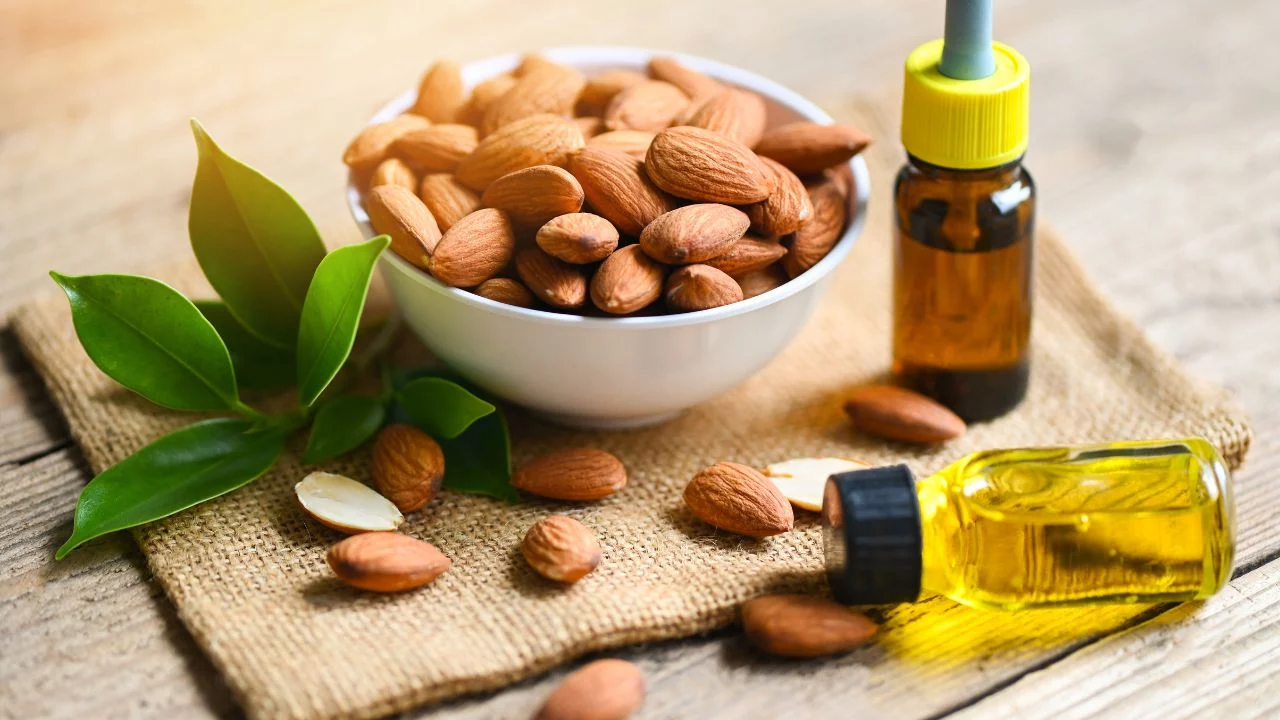Hello, it’s me, Erliza Lee. Cholesterol is a vital, waxy substance in your body that promotes proper nerve and cell function. Your hormones need it to function properly. But too much of it can result in fatty deposits. There are plenty of ways to lower its value. Lifestyle change can play a role. But you may also use essential oils for high cholesterol.
Let’s dive in.
Essential Oils for High Cholesterol
Garlic Oil
As an Amazon Associate, we earn from qualifying purchases.
Garlic is known for its cholesterol-lowering properties, and garlic oil may be effective in reducing total cholesterol and LDL (bad) cholesterol.
Several studies, like this one, show that garlic could lower blood levels of your total cholesterol by a few percentage points.
However, it’s important to note that it may prolong your bleeding and blood clotting time. Thus, don’t take it before you undergo surgery.
If you are taking Coumadin or other blood-thinning drugs, talk to your doctor about taking garlic oil in lowering high cholesterol.
Lemon Oil
It may help to increase the production of bile, which can help to lower cholesterol levels. It promotes proper blood circulation, too. Furthermore, it has potent analgesic and anti-inflammatory properties.
When you use it, it keeps your blood vessels dilated. As a result, it allows continuous blood flow.
Peppermint Oil
It has been shown to lower total cholesterol and LDL cholesterol levels in animal studies. This oil can also be used to relieve stomach cramps and bloating.
The usual dose is one to two capsulated. Take it three times a day.
It’s best that you take it an hour before meals.
Although its effects start a few hours after taking it, you may have to wait up to two weeks to experience its full effect. However, you must not overuse it. It can cause heartburn and indigestion.
Guggul Oil
It’s an Ayurvedic herb that has been traditionally used to lower cholesterol levels. It can help in lowering total cholesterol and LDL cholesterol levels.
This oil is popular in Indian Ayurvedic medicine in treating osteoarthritis and some skin conditions. It can also treat obesity.
It can be an effective natural treatment for hyperlipidemia. How it works in lowering your cholesterol is not completely understood.
And if you’re on keto diet, you might wonder if it can cause high cholesterol. Here’s what we found out.
Other Oils That Can Lower Cholesterol Levels Will Include
Fenugreek oil
It is believed to reduce your cholesterol levels by lowering the absorption of cholesterol in the gut.
Oregano oil
It has been shown to have cholesterol-lowering effects in animal studies.
Rosemary oil
Rosemary oil has been shown to help lower cholesterol levels in animal studies.
Turmeric oil
Turmeric is a well-known anti-inflammatory herb, and turmeric oil may help to lower cholesterol levels by reducing inflammation in the body.
Read: How long will your body recover from alcohol?
Cinnamon oil
Cinnamon oil has been shown to help lower cholesterol levels in animal studies.
One of the most important things to know about lowering cholesterol is that not all oils work for every person.
Certain oil types are not helpful in reducing cholesterol, and even more dramatically, may actually increase it!
That’s why it is so crucial to do your research before experimenting with new oils. Before trying any new product, you should do some reading, talk to others who have used the product, and if possible try a small amount first to see how it works for you.
There are several different ways to use essential oils for high cholesterol, so you can choose which one(s) seem to be helping you along this journey.
Certain oils promote healthy lipid production, and other oils decrease inflammation and/or boost metabolism, both of which are needed to keep your heart health strong.
As we mentioned earlier, there are many strategies to use oils including in recipes or as direct applications. And yes, it is totally okay to still eat foods while also using oils due to the separate functions of each ingredient.
What other methods exist for reducing cholesterol?
Lifestyle change. Or you can try these perfect smoothies.
Certain statins (medications that lower LDL or “bad” cholesterol) have been linked with benefits in individuals who do not respond to lifestyle changes. These include taking additional nutritional supplements like omega-3 fats or eating more fruits and vegetables.
A few studies have looked at whether there is an additive benefit from adding certain supplements to medication. For example, some researchers tested whether people who were already taking a good dose of vitamin D would get even better results if they also took calcium. However, their study did not find such an advantage over just treating patients with vitamin D alone.
There has been some interest in exploring whether cannabinoids may reduce atherosclerosis. CBD can be found in cannabis oil products. Because of potential drug interactions though, it is important to discuss any plans to use CBD with your doctor first.
Overall, although individualized treatments are best, research does suggest that nutrition counseling along with weight loss can help most people achieve improved cholesterol levels.
Nutritionists can help you pick out foods that are heart-healthy so you will know what works for you.
Weighing the pros and cons of different interventions is part of developing an individual treatment plan for anyone looking to improve cholesterol levels and overall cardiac health.
Use Essential Oils
The above-mentioned essential oils for high cholesterol may be effective. But it’s still important that you talk to your doctor about them. Some of these oils may interfere with your cholesterol drugs rendering them useless.
If you don’t like using these oils, you may consider juicing to help you lower your cholesterol.

Speak Now ... Or Forever Hold Your Peace